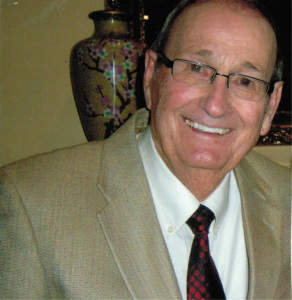
“For whatever a person sows, that he will also reap.” Galatians 6:7
Things that are considered to be “good” usually have a hidden nature. What seems to be good has the capacity to be bad. Even a good person has the capacity for evil. Joseph Stribling was a typical 18-year-old, whatever “typical” is. He was my sister Dot’s grandson. Living in Oxford, Mississippi where Dot lives, he and three friends were riding in a pickup truck on July 1, 2015, having a great time. They hit a curb, turning the truck over a couple of times. Joseph was not wearing a seatbelt and was killed instantly. His three friends were able to walk away.
There’s something totally tragic about the death of a young person. “This is not the way it ought to be,” we cry. What would they have contributed to life? What would they become? Questions without answers; and your mind races to a dead-end street and you are back at square one.
My sister adored him. He paid a lot of attention to her and check on her, especially since she was confined to a wheelchair. Just one week before his death, he had escorted her down the aisle at Joseph’s sister’s wedding. Almost everything was exciting to Joseph—waiting to be explored or climbed or jumped or raced, etc. He was a risk taker, and never saw the danger in anything. Dot worried about him, and was always giving him a word of caution. His attitude was, “I can take care of myself”.
To be a teenager is to be a punching bag for unsolicited advice. And I’m sure Joseph got plenty from his dad and grandmother. But Joseph was a good kid. Although my times with him were limited, I remember him as one who was courteous and respectful. At that age, it’s hard to get beyond the notion that you are indestructible, and that nothing can harm you. Joseph’s father, Jack, had been a County Game Warden and I reckon Joseph learned hunting and fishing first-hand. “Hear O sons your father’s instructions and be attentive that you may gain insight” (Proverbs 4:1). Proverbs goes on to say that we get “wisdom” from our fathers. Mothers, too, of course, but there’s something pretty special about a father’s energy when it’s given with love to a son or daughter. Joseph was loved. Young people take chances, and I’m sure he took his share.
I had a 40-year-old friend who lived in Denver and flew to South America to climb a mountain. He was killed when some rocks turned loose and buried him. What is it about men who must prove their masculinity or virility? Is there a “wild” gene somewhere? Look at the two 14-year-old boys in Florida who set out to go fishing and have a good time. Their boat capsized 67 miles from shore. What started as a good time may end up with two boys lost at sea. The hidden nature of “that’s good” is universal. It seems that everything has its “flip side”. You can apply this to sexuality, alcohol, money and just about anything that attracts our attention. On the surface it may look good, but the subtle nature of danger and evil is relentless.
This applies not only to young people, but to adults also. Take, for example, wonderful, tasty, mouth-watering morsels. Yet, one of our greatest temptations is to turn “good” into something else. We pray, “Lead us not into temptation,” and yet we lead ourselves right square into the middle of it. We overeat and we eat the worst things. Even when we know something is not good for us, we eat it anyway. I passed a fast food restaurant the other day and the smell of fried chicken swerved my car right into the parking lot and I got an order of chicken and biscuits. I came out looking like the cat that swallowed the canary. Delicious. (It would be un-American not to eat fried chicken occasionally).
“Watch at all times, praying that you may have strength to escape all these things” (Luke 21:36). Danger seems to always lurk behind that which looks good, smells good, tastes good and feels good. “This time won’t hurt me,” we say. I believe this is a form of narcissism that some people never get beyond. It’s so easy to rationalize. Small children are narcissistic by nature. This is the bottomless appetite for attention and reward of narcissism. It’s the kind that infants and toddlers need to survive. But not so for adults. We have to grow away from these traits into a more unselfish and compassionate adult or life will seem awfully unfair.
“The heart wants what it wants,” said Woody Allen in a supremely narcissistic moment as he casually explained his decision to ditch his longtime partner Mia Farrow in favor of her 21-year-old daughter. The idea that “desire” equals “license” is a dangerous idea. When we lose our moral base, it’s every person for himself.
One other thing about my great-nephew, Joseph. My sister told me that, a few weeks before he was killed, he told his Dad that if something ever happened to him, that he would like to donate his organs to those who needed them. His family granted his request. My sister, while struggling through tears to tell me this, said, “I don’t know who got his heart, but whoever it was got a sweet one.” Amen.









